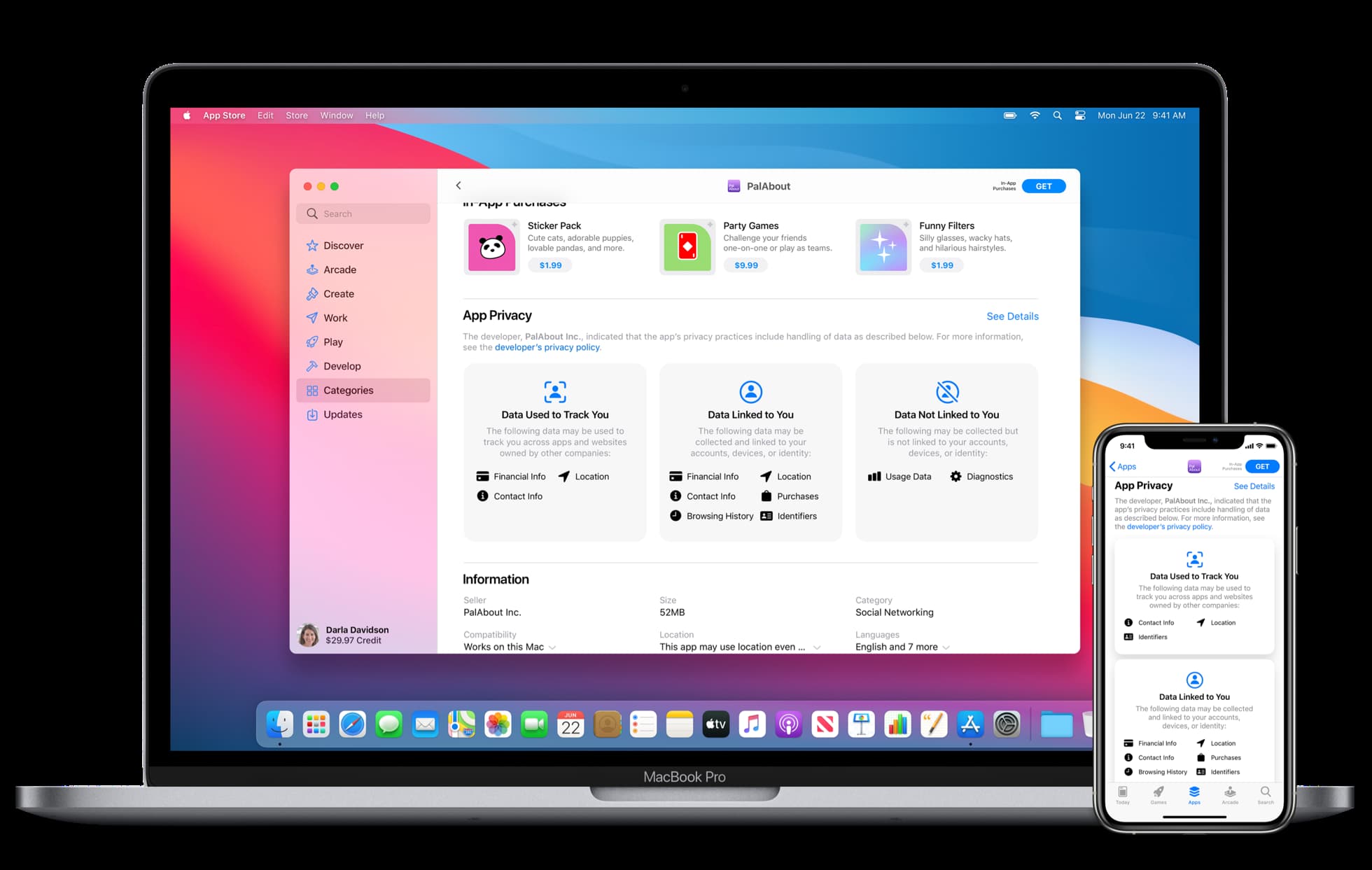
Apple two weeks ago reminded its registered developers to update their apps with new privacy “nutrition labels” in the App Store starting December 8. And now, the Cupertino tech giant has shared precisely all the details it asks developers for this new feature.
Starting with iOS 14, app pages on the App Store have a new section that summarizes an app’s privacy practices. The idea being that customers should know in advance about how an app is managing their privacy before they download it. Developers self-report their privacy practices, such as data collected by the developer and used to track you across companies.
Later this year, the App Store will help users understand an app’s privacy practices before they download the app on any Apple platform. On each app’s product page, users can learn about some of the data types the app may collect and whether that data is linked to them or used to track them. You’ll need to provide information about your app’s privacy practices, including the practices of third-party partners whose code you integrate into your app, in App Store Connect. This information will be required to submit new apps and app updates to the App Store starting December 8, 2020.
The Cupertino technology giant has now shared on its developer portal exactly what it asks developers for these privacy “nutrition labels” on the App Store. The list of data types that an app may collect from users includes the following items:
- Contact info:
- Name
- Email address
- Phone number
- Physical address
- Other useful contact info
- Health and Fitness:
- Heath and medical data
- Fitness and exercise data
- Financial info:
- Payment info
- Credit info
- Other financial info
- Location:
- Precise location
- Coarse location
- Contacts:
- A list of contacts in the user’s phone, address book or social graph
- User Content:
- Emails or text messages
- Photos or videos
- Audio data
- Gameplay data
- Customer support
- Other user content
- Browsing history:
- Info about the content the user’s viewed that’s not part of the app, like websites
- Search history:
- Information about searches performed in the app
- Identifiers:
- User ID
- Device ID
- Purchases:
- Purchase history
- Usage data:
- Product interaction
- Advertising Data
- Other usage data
- Diagnostics
- Crash data
- Performance data
- Other diagnostics data
In addition to the above, the list includes sensitive information — such as racial or ethnic data, sexual orientation, pregnancy or childbirth information, disability, religious or philosophical beliefs, trade union membership, political opinion, genetic information or biometric data — along with “any other data types not mentioned”.
Moreover, developers are required to identify whether each data type is linked to the user’s identity via their account, device or other details. Apple cautions that this information will be required when submitting new apps and app updates to the App Store starting December 8. Existing apps without privacy labels will remain available for download.
App makers can add privacy labels for their apps to Apple through the App Store Connect.